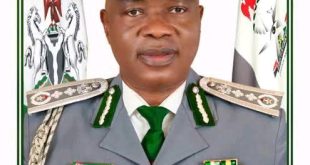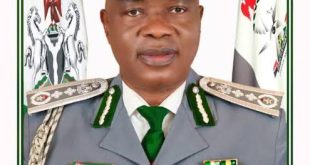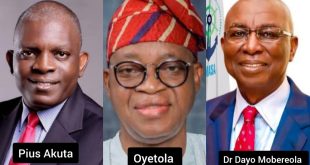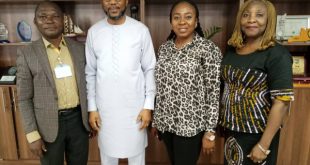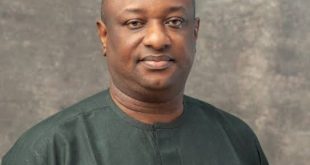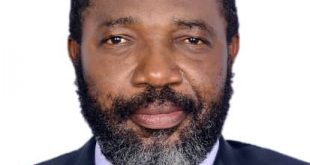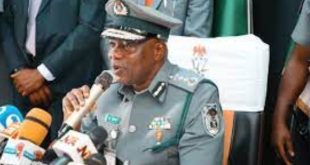
Chief Adetilewa Adebajo is the Chief Executive Officer of CPG Advisory. He is also an Economist and financial expert. In this interview with Arise TV monitored by MMS Plus, he talks on some contemporary economic worries of the economy and how they can be fixed.Excerpts:
I read a piece you wrote recently which you said you wrote for Fela briefly, in which you were using Fela’s music when you said “Overtake don overtake overtake” to describe the situation in Nigeria, similarly the Financial Times says the Nigerian economy under President Tinubu has gone awry and that if government wants to introduce policies, it should do so after doing its home work instead of just introducing policies that they cannot manage. So why do you think that our economy has gone so bad that “overtake don overtake overtake” let’s start with that?

Thank you very much for that question, I also read your article this morning about Tinubu- nomics which you also took perspective on contemporary issues within the Nigerian economy today. It’s rather unfortunate because you know what Fela was saying then was quite realistic. Fela was talking about the issue of high inflation, foreign exchange rate and how it erodes value and the inability to save, what is called stagflation. So in that example he was singing about a civil servant who wanted to save money to buy a fan of ₦700 and each time the civil servant was saving the money to buy the fan the price had increased.
So on this day he was so determined that he put more effort into his savings and on his way to buy the fan the government announced second tier and everything tore to pieces. This was Fela’s narrative. So right now, we have also seen another second tier which is the merger of the exchange rate, we have seen inflation which is looked at 25%, but in reality 30%. So we are finding the same situation whereby our values has been eroded and of course you also mentioned the Financial Times article, so it’s rather unfortunate because the election were won far back as February and now we are in October.

You would hope that things would work out now that we have three very experienced people. You have Dr. Yemi Cardoso who’s an ex city banker as the governor of the central bank, you have the former governor of Kebbi state Atiku Bagudu who is also an ex city banker and you have Mr. Oluwale Edun as the finance minister. He’s an ex chase Manhattan Banker, now JP Morgan Chase. So you have three very distinguished and accomplished gentlemen at the helm of turning the Nigerian economy around. So I think it’s clear that there has been too many false start, so what we can hope now is that the medium term economic framework is due this month in support for the budget for next year. So the only hope now is that they go back to start all over again, press the reset button after all these false start and then with the medium term economic framework and the budget that will come out next year 2024, which they will own, they can then make the necessary corrections and give us some sort of hope and some sort of roadmap in terms of policy direction.
Examining some of these policies of the false start in detail, would you consider the announcement of the removal of fuel subsidy a false start and how can you begin to remedy the situation? That’s one and two, the unification of the exchange rate, at N1000 to a dollar. Its mind boggling, how do you remedy the situation currently?
Yes, those are indeed the false start that we had and I think the fuel subsidy was supposed to be something that when we remove it, we will get a net savings of 10 to 15 billion dollars a year, which we can now use to invest in other parts of the economy and we are to see some sort of benefits but unfortunately when you do that you also understand that you are looking at the market price movement and as you , the landing cost of fuel is about ₦750, so in that case you have to raise the prices of fuel according to the movement of the oil price. Oil prices are nearing a $100 per barrel. A thousand litres of diesel is now a million naira. So that is market driven. The political will to shift the PMS prices are not quite there so there you see the subsidy. So we are back to where we started from.
Are you saying that subsidy is back?
Of course it’s back. You know that. I get information from the world markets, you gett prices and you put two and two together. As oil prices go up, so does subsidy erodes, so you have to increase that. So the other side which we never take into consideration is that when oil prices drop, so does the fuel price also, so we need to be able to understand the dynamics, that it is going to go up and down and that’s what we need to deal with. So I don’t want to personalize it by talking about what Mr. Kyari said. My own training is that I look at fact and figures and I present them and I make deduction from them, these are global prices and the information is available globally.
On the next stuff, which you talked about, the foreign exchange situation, it is rather unfortunate that we looked at a mechanism for the closure of the window, but the issue within the central bank balance sheet which was later exposed meant that, that couldn’t work because you saw the challenges with the reserve, you saw the JP Morgan report that our net reserve are probably close to about 4 billion, so that is where the challenge is, because we don’t have enough of that dollar to be able to manage that system, so that is why that has not worked and of course we have about 8 to 10 billion backlog that we haven’t cleared and then you also have lot of forward contracts which you have signed with the banks because the banks have close to $21billion in swaps with the central bank. Now, these are in house arrangements between the banks and the central bank whereby banks may borrow in dollar and the central bank will warehouse their dollar and give them in Naira. But these are things you need to rearrange and restructure, so all these issues have caused these problem. But these are issues that can be addressed by restructuring the balance sheet of the central bank.
_Let’s talk about debt, since this administration came, the debt numbers increased. You were here to advocate against securitization of ways and means, finally they went ahead with the securitization, they changed the law, they said there’s a 15% threshold, now 5% and all of that. The debt cannot drop, it topped 87trillion as we speak today, how are we going to handle this debt?
Well, the debt problem I think it is quite significant. The ways and means problem hasn’t been resolved. There is no law that says that government can securitize ways and means financing and there is no president in Nigeria according to Nigerian law that can send a request to the Nigerian senate to allow them securitize ways and means, the only way it can be done is to amend section 38 of the Central Bank Act and that has not been done, so because you sent a request to the senate and the senate gave some sort of approval, that’s not the case. The senate passed a resolution before it left that it would like to see the ceiling of the 5% increased to 15%. Even if you do that the ways and means financing base on the revenue cannot be more that 3 trillion. So the ways and means financing has moved from 23.7 trillion on their balance sheet which you will see from the annual report of the central bank in December last year. Currently it’s standing on 30 trillion , there has been about 7 trillion increase in ways and means financing this year alone and for the last three month I think ways and means Financing has increased by 4 trillion .
So that means, we are still printing, the CBN is still printing money as we speak?
Well, yes it is still happening , but I don’t know what the full impact of this is, because we haven’t seen the balance sheet, but what is happening is that they are financing the ways and means thing from CRR, from open market operations, from some of the government deposits, so what is happening now is that, it is the balance of that, that they are printing , so we don’t know the extent of that now, so with the new central bank governor in place, they will probably reconcile some account because the last account released by the central bank on their website is for March, so I haven’t seen any thing since March. Ways and means hasn’t been resolved, the senate cannot just come and say we have approved it, it doesn’t work that way and if the debt management office tries to securitize ways and means, then they are going to be violating the CBN act.
They said they are even spreading it over a 40year period and they have interest and all of that and that people can buy it if they want as bond?
They cannot do that, you can say what you want to say but you cannot do what is illegal, the only way you do it is to change the central bank act, so securitization does not just work, so we have a problem with the debt burden of Nigeria and the problem you are talking about is not even about the current debt that you can reconcile at the moment, so we know about the debt profile, we know the ways and means is about 30 trillion right now, there’s another 100 billion that they have on the DMO website, so maybe about 150 billion. So the biggest challenge now on the debt profile of Nigeria is the forward contracts and the swaps that we have been engaging in. There is a massive need for us to reconcile it and know our true position because that is another debt burden that we have because that means that future revenues have been compromised so that’s another borrowing.
So does it involve this Afri-exim thing we are trying to do and is there any interest rate to that?
Afriexim is part of it, but we don’t know how many and there’s an implicit cost for that because you are going to have to deliver at a particular point in time so the minister of finance and the minister of budget and planning needs to reconcile the value of the swaps and forward contracts so we know out of the revenue we are going to earn next year, which one has been pledged.
Let me take you back to one of the pieces you wrote, one of the things you said in that piece is; turning the Nigerian economy around is not as difficult as it seems once you do the right things. So what are those right things you recommend to Tinubu’s economic team, so that we don’t have Financial Times saying we just take policy decisions without thinking through. This is where we are now with all those indicators, what are those right things that you think should be done beginning with CBN balance sheet?_
First of all, I think we need to restructure the central bank balance sheet as we talked about. The ways and means is 30 trillion, it’s 20% per annum. So basically on 30 trillion, the CBN is making revenue of close to 6 trillion Naira a year on it
So it’s a very profitable venture for the central bank?
It’s illegal, we need to reduce the ways and means to the right limit or we need to amend section 38 to allow whatever it is, they are carrying on their balance sheet. So those are the implications of what the former governor of central bank has done. So once you restore the ways and means to the right limit, then you need to look at the swaps you have with the banks also, make sure they are in order, and restructure them so that they can help with the foreign exchange. Then all those loans you have from intervention loans, NIRSAL and all those loans. If you look at the CBN balance sheet, it’s a big loss on it, so you need to reconcile all these loans, take them out and move them out to the development banks, bank of industry, bank of agriculture . Those banks have the capacity not only to generate loans but also to manage and monitor loans. So get those loans off those balance sheet and let CBN focus on monetary policies.
We need to put in place a new MPC, we need to put a new governing board of the central bank in place, with people who know what they are doing, so that’s number one on the CBN.
Number two, what are the economic policies, we have stagflation, we need to reduce inflation. At a point in time in Nigeria, 2013, 2014, Nigeria’s economy grew at 9%, inflation was just 11%, so with 11% inflation,we can grow this economy at 8 to 10% which is what we need to do.
So the fiscal authority like I have said, between the minister of budget and planning and the minister of finance, they need to get the fiscal house in order. The debt profile has become unsustainable. 95% of revenue are going towards debt servicing, so if we restructure the economy and do the right things and stick to it. It’s not a sprint but a marathon, we should understand that we are preparing for a marathon, we need 18 months of consistency of monetary policy, fiscal policy and trade policy and then we can begin to see the results.
 MMS PLUS NG – Maritime, Aviation, Business, Oil and Gas News Online Newspaper with coverage in Maritime, Oil and Gas, Aviation, Power and Energy as well as Financial News
MMS PLUS NG – Maritime, Aviation, Business, Oil and Gas News Online Newspaper with coverage in Maritime, Oil and Gas, Aviation, Power and Energy as well as Financial News



